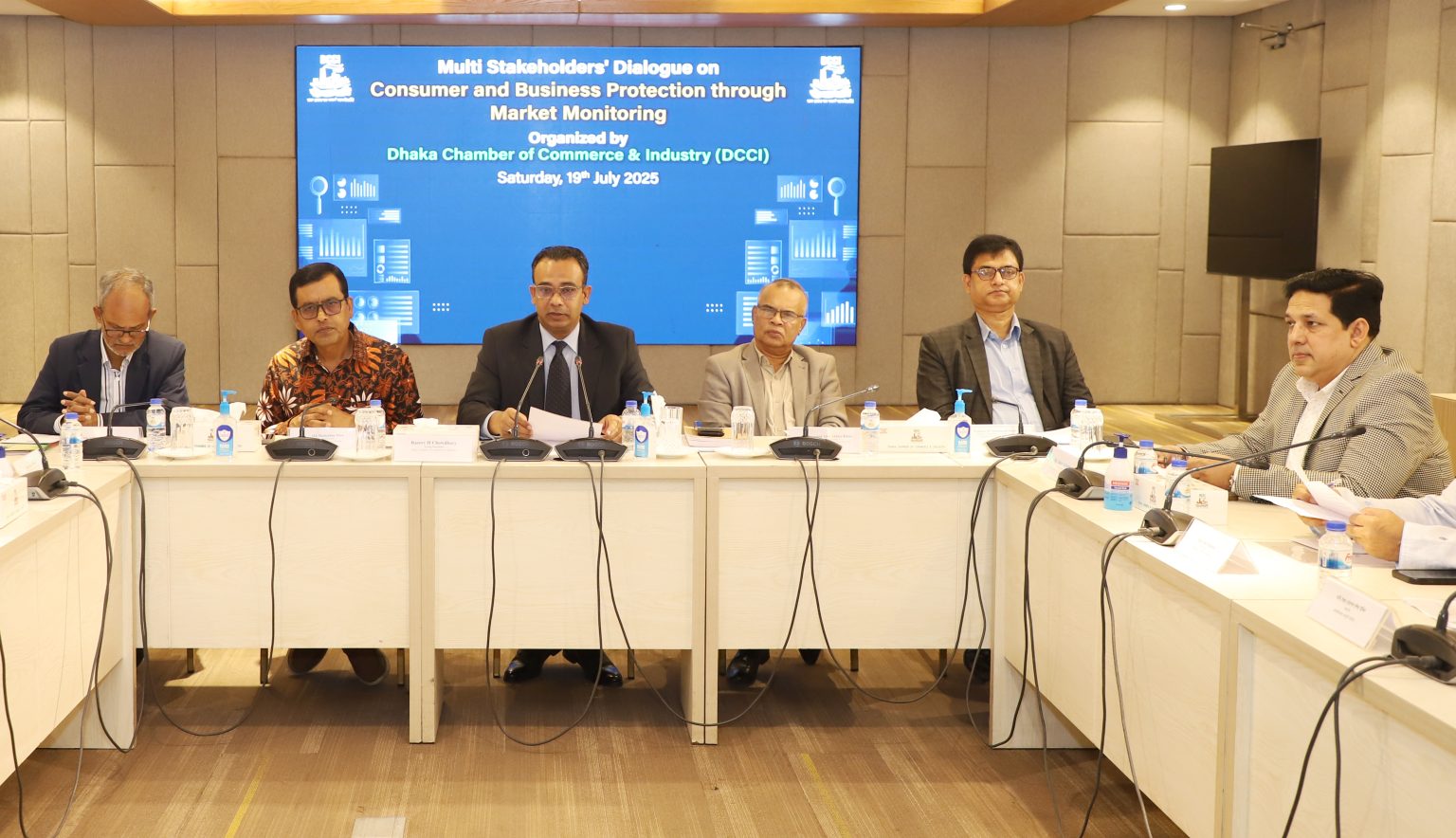Structural inefficiencies and lack of effective surveillance have pushed the market of essential commodities far from consumer protection, while honest businesses also suffer significantly in the current market environment, speakers said at a stakeholders’ dialogue on Saturday.
The gathering, hosted by the Dhaka Chamber of Commerce and Industry (DCCI) in the capital, called for reforms to remove structural weaknesses alongside the formulation of a coordinated market supervision system to address the growing challenges and ensure fair competition.
The pressing challenges
Dhaka Chamber of Commerce and Industry (DCCI) Acting President Razeev H Chowdhury emphasised that artificial price hikes and market manipulation continue to undermine the growth of small and medium enterprises (SMEs) and hurt consumers.
“Despite the country’s economic expansion, SMEs and consumers are facing ongoing challenges such as price manipulation, artificial crises, and poor-quality products,” Chowdhury said.
He called for an integrated market supervision framework to eliminate unethical practices and create a level playing field for all market participants.
One of the major contributing factors to price inflation is the role of middlemen, noted Dhaka South City Corporation (DSCC) Administrator Md. Shahjahan Mia.
He explained, “The involvement of middlemen in the distribution and transportation of goods has led to unnecessarily high prices for essential goods.”
Dhaka South City Corporation (DSCC) Administrator Md. Shahjahan Mia stressed that middlemen in the supply chain inflate costs and hinder market fairness, which directly impacts consumers.
Directorate of National Consumer Rights Protection Director General Mohammed Alim Akhter Khan highlighted the limited resources for effective market monitoring.
“There are only 19 offices across 64 districts, and many of them are understaffed. This limits our ability to ensure market fairness and consumer protection,” Khan pointed out. He recommended enhancing coordination among government agencies to address these monitoring gaps.
Need for a coordinated approach to market reforms
To address these issues, participants urged the implementation of a coordinated market monitoring system.
Bangladesh Food Safety Authority member Professor Dr. Mohammad Shoeb proposed the use of digital technology to improve market surveillance.
“Digital tools will allow for real-time data collection and better decision-making,” Shoeb said, stressing that technology could be a game-changer in enhancing market oversight.
Bangladesh Competition Commission member Dr. Md. Akhtaruzzaman Talukder also weighed in on the need for fair competition in the market. “Adequate research on supply and demand, along with data analysis, will help prevent unfair competition and ensure a balanced market for businesses,” Talukder explained.
In response, Bangladesh Supermarket Owners’ Association General Secretary Md. Zakir Hossain suggested the creation of a market monitoring cell with private sector and government representatives. This joint initiative would oversee imports, ensure fair pricing, and tackle market manipulation in real time.
Strengthening the supply chain and addressing storage issues
The conversation also highlighted storage inefficiencies that contribute to price volatility. Bangladesh Poultry Industries Association Senior Vice President Khandaker Monir Ahmed emphasized the need for better storage systems to manage demand fluctuations, particularly for products like eggs.
“During Ramadan or winter, demand for eggs falls, but production cannot be reduced accordingly. Adequate storage systems will allow us to manage the supply chain effectively,” Ahmed explained.
Law for market fairness
The dialogue concluded with a discussion on the need for legislation to ensure market fairness.
Moulovi Bazar Traders’ Association General Secretary Haji Mohammad Golam Mowla proposed setting fixed profit margins to regulate the pricing system from wholesale to retail.
“The profit margin between wholesale and retail prices is often excessively high. This needs to be regulated,” Mowla argued. He also suggested that punitive measures, rather than just financial penalties, should be introduced to curb unethical market practices.
The dialogue set the stage for future policy initiatives and collaborative actions to create a more transparent, accountable, and efficient market that works for everyone, fostering both the growth of businesses and consumer welfare.


